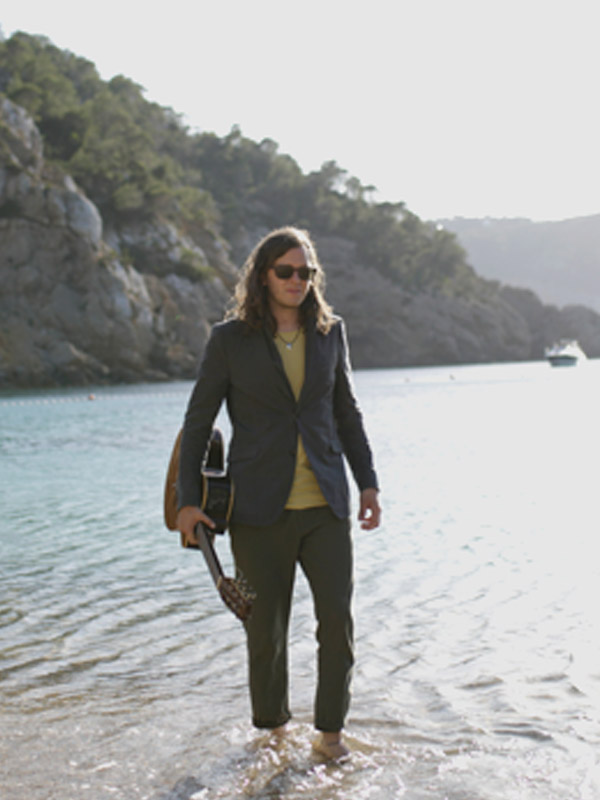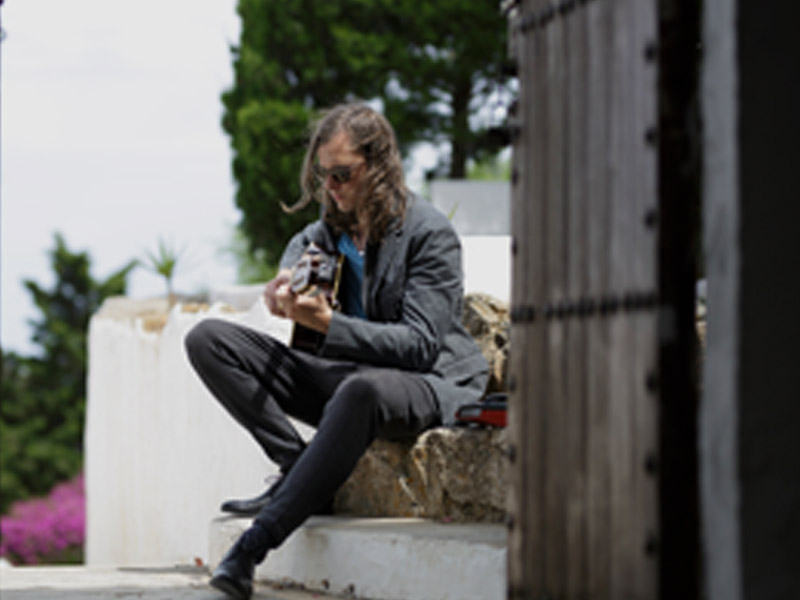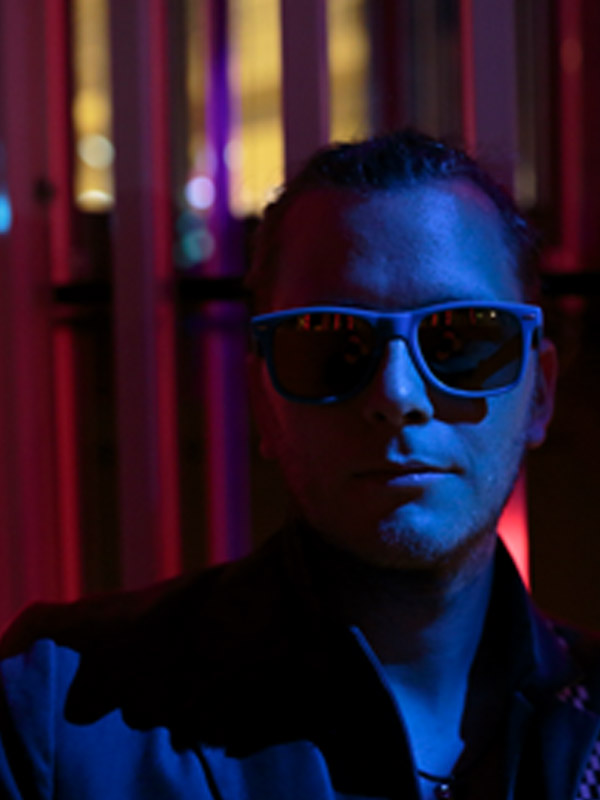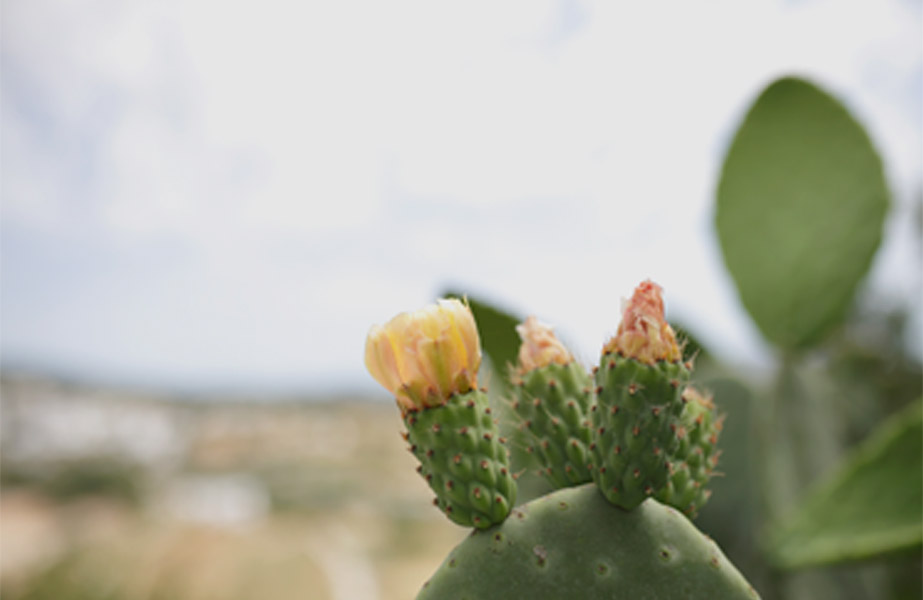



About
Dekorative Musik nennt Kai Otten das, was er macht. Was verniedlichend oder gar abschätzig klingt, ist es nicht. Im Gegenteil: Denn gute Musik darf auch Hintergrundmusik sein, findet der 33-jährige Komponist, Produzent und Gitarrist. Musik darf plätschern, zum Träumen und Entspannen einladen – sie muss den Hörenden aber auch in die Pflicht nehmen, all das zu entschlüsseln, was passiert.
Die Einflüsse und Sounds reichen von Ambience über Easy Listening zu Electronica, von Flamenco über Jazz zu Trip Hop. Handgemachte Klänge und handgespielte Instrumente treffen auf Synthesizer und Samples wie Knistern, Rauschen, Rascheln, Klingeln und Kratzen. Und immer setzt sich auf das liebevoll zusammengesetzte Instrumental Kai Ottens glasklare, solierende Konzertgitarre.
Die hört man in elektronischer Musik selten, in dieser Hinsicht ist Ottens Herangehensweise auch ein Experiment: der Versuch, die Frage zu beantworten, wie man mit klassischen Mitteln Loungemusik macht. Eben diese hat Otten bei seinem Studium an der renommierten Hogeschool voor de Kunsten im holländischen Arnhem und bei der Arbeit als Musiker in diversen Bands gelernt. So entstand der Wunsch, Musik zu machen, die elektronisch klingt, es aber nicht ist: Mit Ausnahme von höchstens einer Handvoll Loops sind alle Instrumente auf seinem bevorstehenden Album „Camper Mode“ live eingespielt, unter anderem von Ausnahmepercussionist und Grammy-Preisträger Nené Vásquez.
Das klingt dann mal so bewegt und rhythmisch, als sähe man Ché mit dem Motorrad durch Chile brettern. Und mal schwebt man auf sphärischen Klangteppichen mit Major Tom durchs All.
Geprägt haben den Wahlkölner Kai Otten dabei Künstler wie Air und Blank & Jones, Moby und Tycho. Die Aufzählung wird vervollständigt durch die ersten Chillout-Compilations von Café del Mar, von denen Otten findet, dass sie ihrer Zeit voraus waren. Dasselbe lässt sich auch über ihn selbst sagen.
Kai Otten evoziert beim Hörer Bilder, die durch das bewusste Weglassen von Vocals umso stärker werden, weil kein Text sie einschränkt. Genau das ist die Idee hinter der Musik: Dass beim Hörer individuelle Bilder und Geschichten entstehen. Die Musik wird zum Soundtrack verschiedenster alltäglicher Situationen und besonderer Ereignisse und bekommt so, obgleich sie immer noch Hintergrund ist, Anspruch und Tiefe.
Decorative music is what Kai Otten calls his second acoustic-electronic album „Camper Mode“. This is not meant to sound belittling or even disparagingly in any way. Quite the contrary: Because good music can indeed be background music, says the 33-year old composer, producer and guitarist. Music can be gentle, invite you to dream and relax – but also has to take the listener up his or her promise to decode what actually happens. And that is what you can find a lot of on „Camper Mode“, released on Kai Otters own label Lounge Aroma.
The influences and the sounds range from Ambience to Easy Listening to Electronica, from Flamenco to Jazz to Trip Hop. Handmade sounds and self-made instruments meet synthesizers and sound samples like crackling, noise, rustling and ringing. And every time Kai Otten`s crystal clear solo concert guitar puts itself on top of the lovingly composed instrumentals.
This is rare in electronic music, so in this regard „Camper Mode“ is also an experiment: the attempt to answer the question on how to make lounge music with conventional methods. Those methods Otten learned while studying at the renowned Hogeschool voor de Kunsten / University of the Arts in the Dutch city of Arnhem and while working as a musician in various bands. Thus came about the wish to record an album that sounds electronic but in fact isn`t: with the exception of a handful of loops at most all instruments were recorded live, amongst others by the exceptional percussionist and Grammy Award winner Nené Vásquez.
That can sound so moving and rhythmical like on the track Flamingo as if you saw Ché speeding through Chile on his motorbike. Another time you are floating through space with Major Tom on spherical soundscapes. Or – like in the appropriately named song In Clouds – through the air.
The Cologne based Kai Otten was influenced by artists such as Air and Blank & Jones, Moby and Tycho. This list is completed by the first chillout-compilations of Café del Mar. Compilations Otten thinks were ahead of their times. The same can be said about him and „Camper Mode„.
During the whole hour of this album Kai Otten produces pictures for the listener that become more intense by deliberately leaving out vocals with lyrics that might restrict them. Exactly that is the idea behind the music: the listener can get an experience of individual images and stories. The music becomes a soundtrack for different daily situations and special occasions and thereby, although still in the background, gets a certain specialty and intensity.






